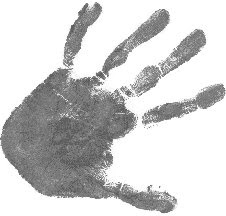river stones
There’s an old Jewish story – old being before the Maccabees – about the flat stones found in the southern foothills of the mountains. The stones were clearly river stones, but no river was there, nor had one ever been there to anyone’s knowledge.
In the mountains beyond the foothills were eagles that were particularly vicious hunters. They were patient and nothing escaped their attacks.
As the cold weather came to the regions north of the mountains, the geese would fly south over the mountains. As they honked to each other in flight, their honks also told the vicious eagles of their presence. The eagles would soar to the heights of the geese, and drag their bodies back to the eagles’ nest to be eaten.
Over time, the geese learned to stop and rest before crossing the mountains. They would each take a stone from a riverbed north of the mountains into their mouths. They would then fly over the mountains silently, as the river stone filled their mouths and they could not honk. Since they flew so high and so quietly, the eagles were never aware of their presence.
As the geese cleared the mountains, they would drop the river stones from their mouths. Hence, the river stones in a place where no river ever flowed.
The direct interpretation of the story was that there was a time to speak and a time not to speak. Speaking at the wrong time could have dire consequences.
I like to step back from the story and find a more general meaning. There is a time when some acts are appropriate, and a time when those same acts are not appropriate. Doing an act out of its proper time can have, indeed, dire consequences.
Even more generally, there is a season for acts. Sometimes those seasons end and never come back. Continuing to do an act beyond its season can have dire consequences.
“Dire consequences” can never be looked at too narrowly. Effects can be direct to the actor, direct to those acted upon, or indirect to those two or others beyond that limited group.
This discussion reminds me of teaching Ethics. No act ever occurs in a vacuum. It is as if every act creates energy. The energy of every act ever performed lingers to this day. A bad act today can affect perceptions and decisions decades from now.
I always liked the simple ethics test called, “newspaper headline.” What if your acts were fully described on page one of the newspaper for all to read – friend, family, and foe alike. Would you still do the same act in the same way? Could you defend your actions to your harshest critics? What will you say when the dire consequences become public?
I think I shall be reminded to review my own acts every time I find a flat stone.














No comments:
Post a Comment